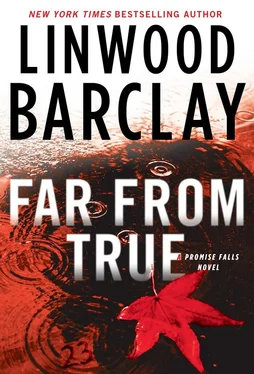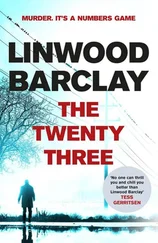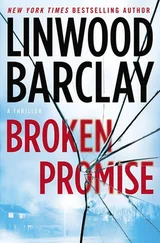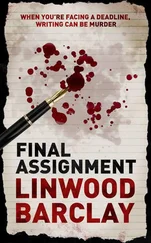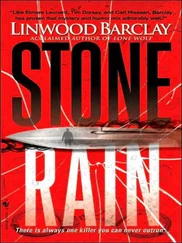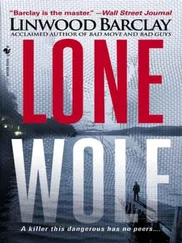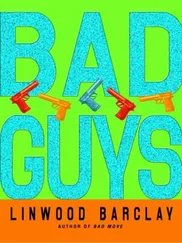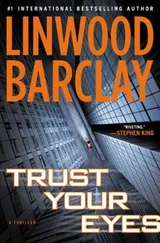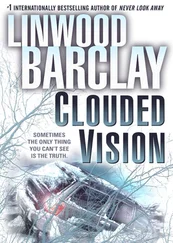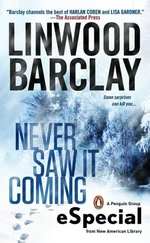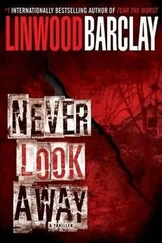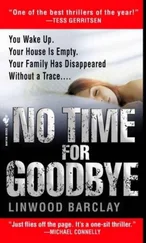I woke around six, but lay in bed for nearly two more hours. There was nothing to get up for, so it didn’t make much sense to me to greet the day with any enthusiasm. But a logy head finally forced me to throw back the covers. I padded, barefoot, into the kitchen nook — the apartment wasn’t big enough to have an actual kitchen, but a fridge, a stove, and a sink were tucked off into the corner of the living area. I put on some coffee, turned on the small TV beyond the couch — I like having some noise going on in the background — and intended to have a shower while the coffeemaker did its thing, but the first two words I heard were “Promise Falls.”
So I stopped. Stood by the couch and watched. When the coffeemaker beeped, I poured myself a cup and continued to watch.
Jesus.
Four dead. A couple in their sixties tentatively identified as Adam and Miriam Chalmers, whose vintage Jag had been turned into a sandwich board by the plummeting screen. And a teenage girl and her boyfriend, seventeen, who’d borrowed his parents’ Mustang convertible so he could take her out. Their names hadn’t been officially released yet.
There was my old friend Barry Duckworth talking to TV crews that had swarmed in from Albany and beyond.
“Is this an act of terror?” someone shouted at him.
Barry looked at the reporter stone-faced. “We have a long investigation ahead of us. There’s nothing at this time to suggest anything remotely connected to terrorism.”
“But it was a bomb, wasn’t it? The screen didn’t just fall down. People say there was a huge explosion.”
“Like I said, we’re just at the beginning of our investigation.”
A number of people who’d gone to enjoy the Constellation Drive-in’s last night of business had shot video with their cells and sent it to various media outlets. At least one person was actually recording what was on the screen — something about trucks turning into robots — when all hell broke loose.
So now I knew where all those ambulances had been heading last night when I stood on the porch with Dwayne. I’d figured they were headed to a major car accident on the bypass. Never would have guessed it was something like this.
I gave it about half an hour, left the set on, and had my shower. When I got out, they were still covering it. Matt Lauer was talking to a mother who’d taken her daughter and her daughter’s friend. When he was done with them, he brought someone else on camera.
“This is Randall Finley, the former mayor of Promise Falls. You were one of the first to the scene, Mr. Finley. Can you tell us what you saw?”
“Bedlam, Matt. Pure bedlam. It was like a war zone.”
Finally someone said it. Every disaster was always “like a war zone.” That’s how these things were always described by people who’d never seen a war zone.
“I got there as fast as I could to lend help in any way possible. This is a terrible tragedy for the people of Promise Falls and I’m in the process of setting up a relief fund to help the families affected by this disaster. There’ll be more later today at ‘Randall Finley dot com’ for those who want to contribute.”
It was laundry day.
I returned to the bedroom and gathered up some stray socks and boxers and tucked them into my laundry bag. Shirts I kept separate in a second bag, which I’d drop off at the dry cleaner’s on the way. There were no laundry facilities in my apartment, or anywhere in the building, so I trekked over to a Laundromat several blocks away once a week.
I shaved, got dressed. Made myself a piece of toast with strawberry jam, ate it standing in front of the sink. Washed off the plate and left it there. My mini-palace was also minus a dishwasher, except for me.
I slung the bag over my shoulder and headed out, pockets stuffed with quarters.
My place was right downtown, and being above a bookstore had its advantages. I could have done worse, like renting over a bar. I didn’t have to suffer through late-night parties, drunken fights, fried-food smells, people throwing up and taking a piss out back.
Occasionally, when home through the day, which was often, I could hear opera music coming up through the vents. Naman Safar, who ran the place, was an opera buff. I was not, so I never knew whether I was being subjected to Offenbach or Bellini. I’d broken the music down into two categories. Some of it was annoying, and some of it was less annoying. But none of it was annoying enough that I ever complained to Naman. He was, after all, my landlord, and it was smart to stay on his good side in case the toilet plugged up or I started hearing mice in the walls.
The door to my place — it was the one with the very small plaque that read CAL WEAVER INVESTIGATIONS — opened from the sidewalk right onto a flight of stairs and was directly beside the entrance to Naman’s Books. As I was coming out, he was going in. The sign in Naman’s window said he opened at ten, but that was only an approximation. Some days he was there early, but most days he didn’t open up until at least half past. Today was one of those days. It didn’t matter to his customers, who knew better than to come before eleven. They also knew there was a good chance Naman might be there hours after closing time.
“There’s nothing to do at home,” he told me once. He’d never married, had no kids. “I get bored.”
Born in Egypt, Naman and his family moved to America when he was nine. He’d majored in English literature and taught high school for a couple of decades, but trying to manage a classroom full of kids eventually became too much for him. He didn’t know whether he’d become less tolerant or the students had gotten worse. Either way, he opted for running a shop that was devoted to his love of books.
“Did you hear?” he asked when he saw me.
“I heard,” I said.
“A shock. A terrible shock. They are saying it could be terrorism.”
“A bit early to say.”
“Yes, yes, I agree. That’s the first thing everybody thinks these days. This country is totally paranoid. Everyone is out to get America.”
I wasn’t up for a discussion of America’s temperament.
“Laundry day?” Naman asked.
“Heading over now. Catch you later.”
The Laundromat was five blocks from home, the dry cleaner en route. I dropped off the shirts, continued on. The place wasn’t that busy. I’d found midmorning was a good time to be sure of getting a couple of machines.
The woman who ran the joint — Samantha Worthington was her name, but she went by Sam — was taking a rag to a washer, wiping away spilled soap.
“Hey, Sam,” I said.
She gave me a nod. She didn’t talk a lot.
I didn’t know much about her, except that she had a nine-year-old kid named Carl. He hung out here after school many days. She was an attractive woman, but there was a hardness about her. She’d been through things. She looked thirty-five, but I was betting she was late twenties.
“Hey,” I said.
She glanced my way. “Hey,” she said back. “Hear about the drive-in?”
“Terrible,” I said.
That seemed to cover it. She went into the office at the back, returned with a small leather bag. Using a key, she unlocked the coin boxes on each of the machines and dumped quarters into the bag. She drew the drawstring tight at the top and went back into the office, where I was betting she had a machine that would collect those quarters into neat stacks for taking to the bank.
I dumped my stuff into two machines, dug to the bottom of the bag for the box of soap powder and the plastic bottle of fabric softener I’d brought along, poured them into both washers, and closed the lids. I brought out all the quarters from my pocket, fed them into the appropriate slots, and drove them home.
Читать дальше
